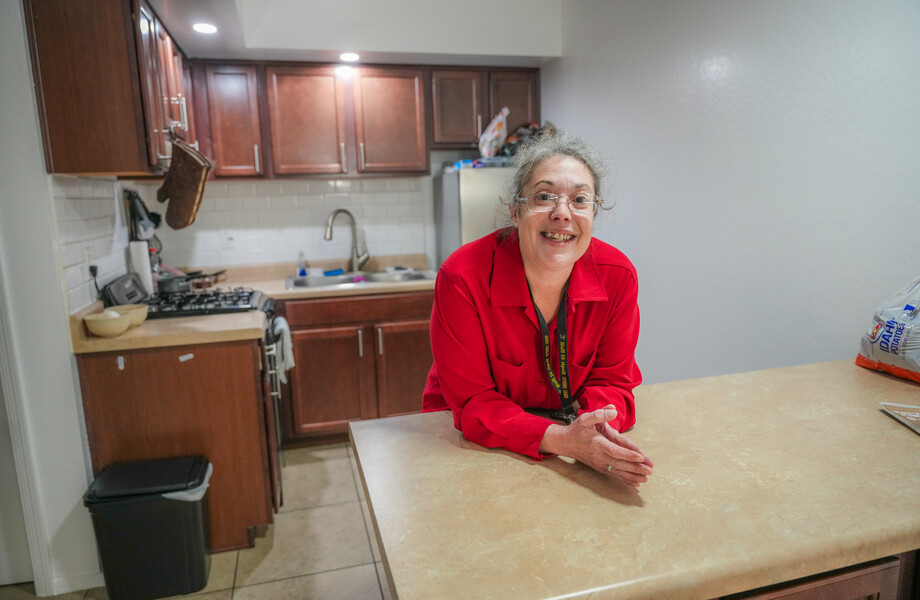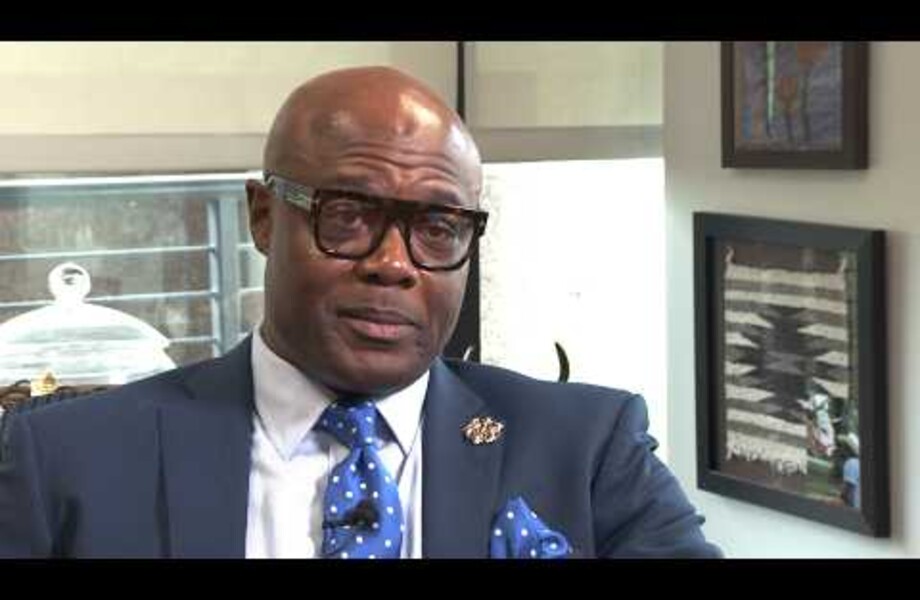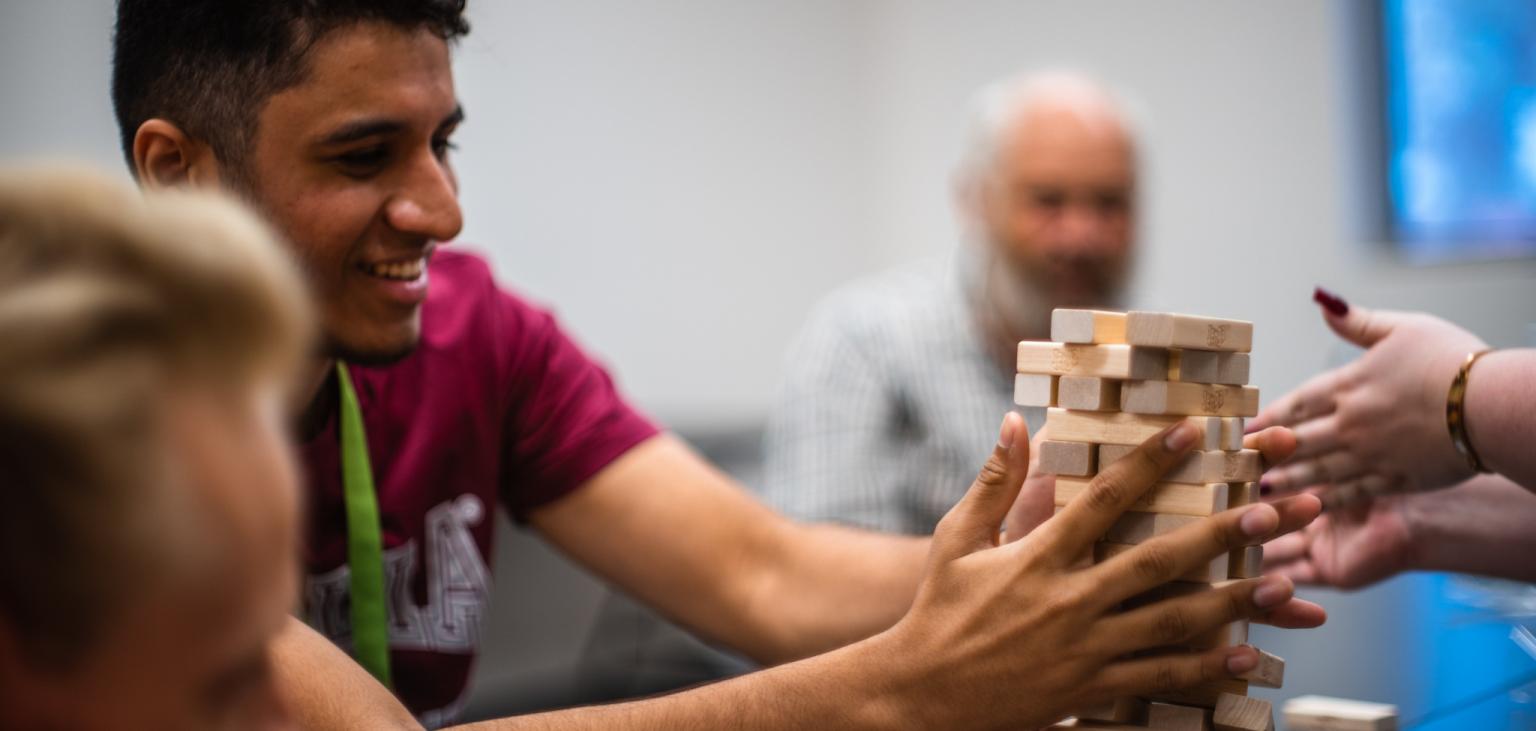
A total game changer for unhoused guests
By Andrea Ariza
Wednesdays are special at St. Vincent de Paul’s Resource Center for people experiencing homelessness thanks to three Leadership in Action fellows who have brought the family board game experience to some of SVdP’s most vulnerable guests.
Aneesh Kalya, Megan Scheid and Logan Alvarado spearhead the weekly "Game Time" event through the Listening Project at SVdP, guided by Shawn Donnelly, community engagement programs manager. The project aims to create environments and programs for listening to take place — listening to those SVdP serves. Wednesday Game Time is one of those opportunities within the project.
At one side of the table Cory Hill plays Connect 4. Game Time is more than just killing an hour and a half. It helps Cory manage the stress and crisis of street living.
“It's a perfect distraction from what is going on in your life whether you’re dealing with, of course, homelessness or anything else,” Cory says. “Board games are my escape from my everyday life. This activity is the best thing that SVdP has done by far.”
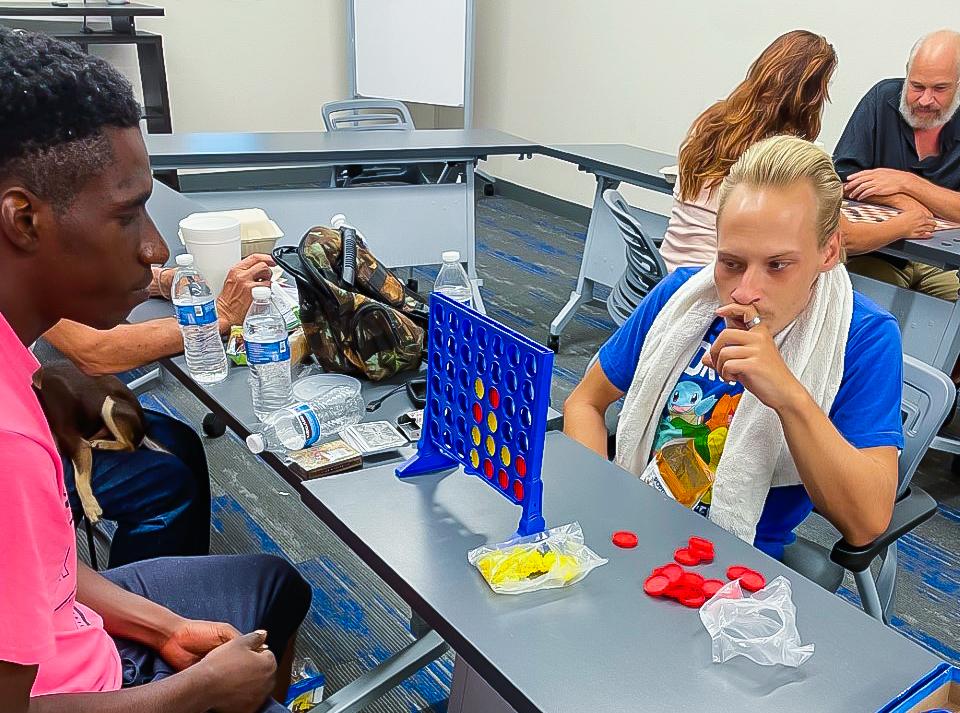
Cory is one of the many guests experiencing homelessness that come to the Resource Center for Game Time, which helps reach so many community members who are struggling and disconnected from a support system. The Listening Project offers several activities, like Game Time, that build a sense of belonging, community, and healing, so that guests have more than access to hot showers and meals—they have a way to sustain the human spirit. Such healing requires creating intentional space for intentional listening.
“Active listening is so different from passive listening where you don't have an agenda in your mind,” Aneesh says. “You're not prepared on what you're going to say next. Just having a clean slate in your mind, you want to learn something when you listen.”
A sense of family unity develops as guests begin to trust each other and their environment. Outside the Resource Center, guests can be complete strangers to each other. They might not engage with one another because they don’t have the medium to do so. That all changes when they step into Game Time and other Listening Project opportunities for connection.
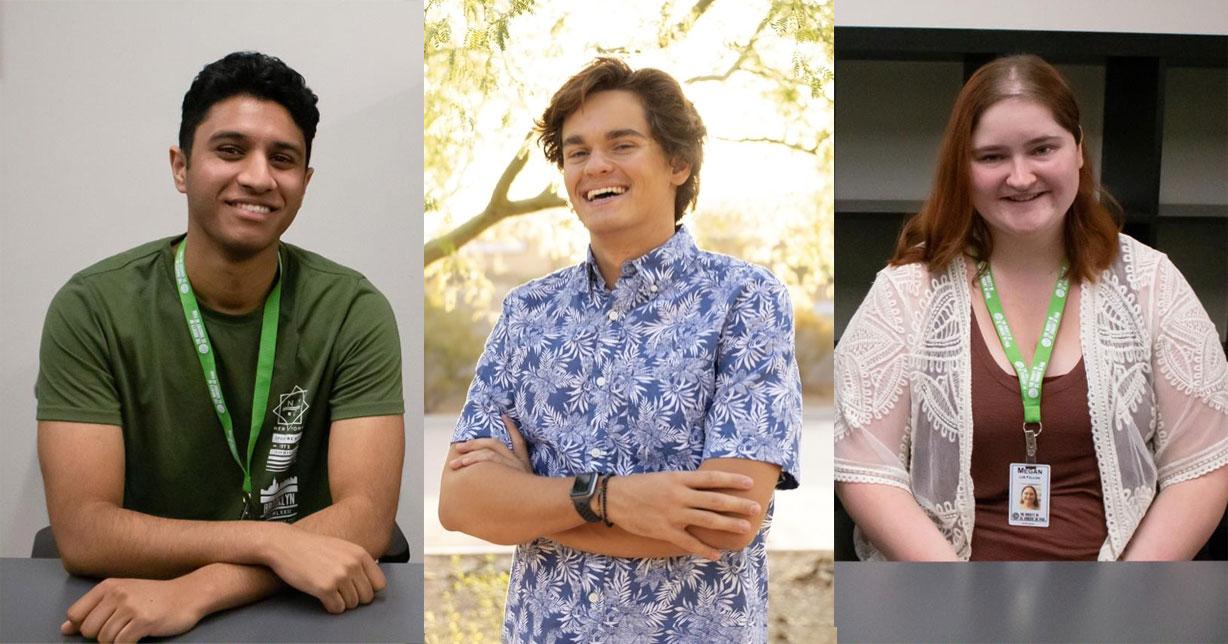
“You see them sitting outside by themselves, not talking to anyone,” Aneesh says “Once they come here you see a smile. You see them treating people they don’t even know as brothers and sisters once they start playing.”
Games like Jenga, Connect 4 and Chess are among guests’ favorites. Players talk about the games while they think critically about their next winning move. Once conversation begins, it can go in any direction from their childhood to their favorite movies.
Outside, there are few distractions from the sadness, disappointment or pressures of daily living on the street, but during Game Time, their energy lights up in a healthy environment where they can feel cared for and listened to.
“They think no one cares about them,” Aneesh says. “That's how they feel, especially if they don't have any support systems like their mom, dad, sister, or brother. They need someone to be there for them. Being there as an emotional support and providing any connection to them is powerful and rewarding for us.”
It’s more than just playing board games. Guests are reminded of their humanity and worth through the thoughtfulness and act of being listened to.
“When you do something as simple as remember their name and just call them by their name before they tell you, that makes them smile,” Aneesh says. “They just feel closer to you, and it feels like a community, and I think that's a big thing.”
For Aneesh, Megan and Logan, their main goal is to ask guests what they want. They make sure to listen to guests’ board game recommendations and put effort in making that happen for them. They have noticed this simple act makes guests feel special and taken care of.
“If they ask us, ‘Hey, let's get this game.’ We get that rolling. The excitement they show when they come in, they're like, ‘Oh, someone did something for me; it actually got done,’” Aneesh adds. “I'm sure a lot of times in their lives they have asked for something, and it's never been done. It's been pushed aside, but when they feel like a priority, they're going to come and they're going to show more excitement.”

Sometimes guests don’t feel like playing board games, but they need someone to talk to. Guests are still welcomed to come in and talk about their day. It helps them feel at ease, knowing that there is a place where they can come in to talk and leave with a better mindset.
It is a satisfaction for Aneesh, Megan and Logan to see guest’s journeys and to be part of it in a special way as it relates to them.
For Megan, she recalls being in rough places in her life where she really needed to vent and have someone there to listen, but no one was there for her. She understands what it feels like to be in a place where she has felt lonely through difficult times.
“This is why I’m here to listen to them,” Megan says. “It’s really very important for me to provide that as best as I can.”
Megan says she understands, from the dark moments in her life, that human beings can do more in their lives than just survive; they can live. Spending time through the Listening Project and providing that face-to-face connection with guests can help them in that process.
“It's hard to get out of that mindset to feel safe and comfortable around another person to open yourself to them,” Megan explains. “But just doing that helps you get away from just surviving. It helps you actually live and process healing from whatever you're going through in life.”
Aneesh is a believer that board games spark more than conversation between guests. Even more valuable is the potential to find meaningful friendships that they wouldn’t have made if it wasn’t for the program.
“That’s a huge thing that I think about with this program,” Aneesh says. “If, for example, Cory comes in here and creates a friendship, someone like-minded like him, that can be that friendship and that bond that they need in life.”
This program provides a unique opportunity not just for guests but also for SVdP staff and volunteers. Listening not only helps those we serve but transforms the listener into a more compassionate, nurturing and patient person.
“It’s important to validate that there is something that we can do and provide,” Megan says. “Not just for guests but for everybody to be able to have that community and connection.”

